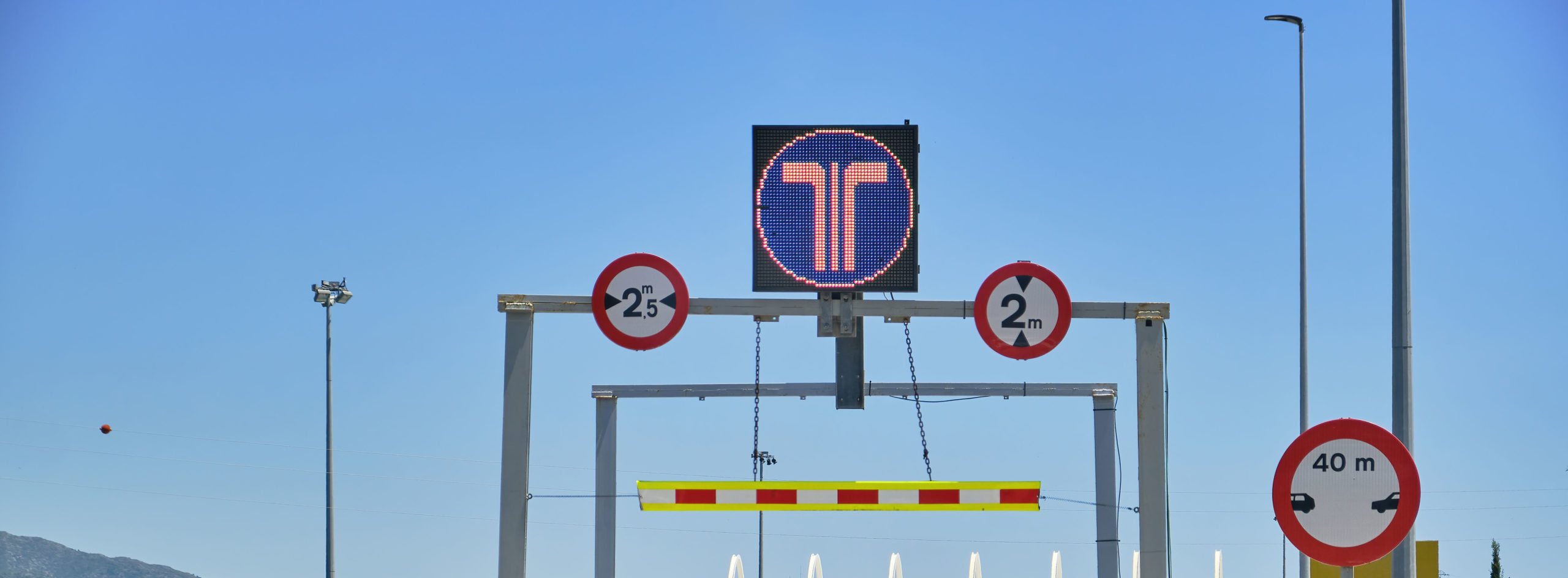

How do you pay for motorways?
In August, after 52 years operating, Catalonia has abolished 556 kilometres of tolls, and the question now is: How do we pay for their maintenance? We are explaining to you how much has been collected by Catalan roads and how other European countries maintain their road networks.
From now on, the Spanish state will have to maintain most of the Catalan road network, which costs 60,000 euros per kilometre, some 33 million euros per year. How to do it has not an easy answer. Although tolls in Catalonia have produced extraordinary revenues, generating 537 million euros a year, they have benefited concessionaires and shareholders more than they had invested. On the other hand, it has financed 132 municipalities through the Property Tax (IBI). Despite this, Spain is at the bottom of European countries in terms of both investment and revenue collection.
In fact, the Spanish state does not have a clear model for maintaining its roads, most of which are free for users, a fact that has left an 8 billion euro hole in the public coffers. To reverse this deficit, the Spanish government has proposed tolls on motorways and a Pay-As-You-Go system for high-capacity roads, as part of a post-covid recovery plan with European funds.
Portugal, the mirror in which to reflect itself
Such a proposal is inspired by the Portuguese model, which has an additional charging system that includes motorways. In Portugal, as in Poland, vehicles must be registered and are charged by means of camera arches installed on the roads.
Another payment model is the one used in many Central European countries, such as Austria, Switzerland, the Czech Republic, Slovakia, Slovenia and Hungary, with the so-called vignette system, in which the driver pays a fixed price for driving on the roads. In the Austrian case, for example, it is 80 euros per year. Catalonia wanted to implement this model, but has finally agreed to share the same system as the entire Spanish road network.
France, in turn, has a mixed model similar to the one currently in place in Spain and, in a completely opposite way, Italy has almost all of its roads managed by private toll companies. On the other hand, in Germany, Belgium, the Netherlands and Denmark, the entire road network is free and financed by state budgets, with small exceptions, such as heavy goods vehicles, which must pay to circulate.
Do you want to be the first to receive the latest news about 11Onze? Click here to subscribe to our Telegram channel





Totalment d’acord amb la Mercè: curiós que el manteniment de les carreteres sigui un problema des que desapareixen els peatges a Catalunya…
Això es Lluís, com a mínim, curiós, és.
El sistema alemany , belga etc es una manera de fe pagar els Camions
Correcte Ricard, la idea és aquesta i sembla bona.
👍
💛
Disculpeu per la tabarra, però el tema és important. Estic d´acord amb el Sergi. He encetat el meló de la doble via precisament perquè no és tan fàcil dir que pagui qui tingui cotxe o qui utilitzi l´autopista .Tenir una xarxa viària digne a tot Catalunya és el començament per evitar la discriminació dels habitants de les zones no centrals. Molt important, on hi ha més accidents greus és a les carreteres d´un sol carril. L´exemple de l A-7 a Tarragona és claríssim. Si la AP-7 hagués estat gratuïta no s´hauria fet .
Gràcies
No et preocupis per això està la plaça, és veritat les carreteres són infraestructures d’estat i tots, directament o indirectament n’em gaudim!
No deixa de ser curiós que el manteniment de les autopistes esdevé un problema quan Catalunya deixa de pagar peatges estatals. Els de la Generalitat encara duren.
En quan al tema de pagar per circular està bé sempre que hi hagi una alternativa. Pots anar a la escola pública o voluntàriament a la privada. O la Sanitat pública universal o voluntàriament privada. No tothom viu i treballa a l´àrea metropolitana. de Barcelona Per altra banda ja es paga per tenir cotxe, és l´impost municipal de circulació, purament recaptatori, i en poc temps l´impost sobre el CO2
És veritat que has de tindre les dues possibilitats, però crec que també trobo ineficient tindre dues vies d’alta capacitat per anar al mateix lloc encara que una t’eviti 10 min, ja que a part de gastar-te més diners, fas més destrossa a la naturalesa. Un cas que passava antigament era el tram de l’A-7 de Tarragona a l’Hospitalet de l’infant que té el recorregut paral·lel a l’AP-7, que van haver de desdoblar perquè la gent es matava a l’antiga nacional 340 i que ara tenim 2 autopistes per mantenir, quan la solució real i més econòmica hages sigut treure-li la concessió a la concessionària de l’autopista i ampliar la AP-7 a les necessitats del tràfic i ara tindríem una autovia per mantenir.
Jo seria partidari de la vinyeta ja que abarateix el preu a qui més l’utilitza (necessita). Posar-ho als pressupostos generals inclou també els que no tenen cotxe
És veritat que realitzar un copagament per a qui més utilitzen les carreteres és un mètode lícit que pot ajudar també a reduir les emissions, però crec personalment que encara que no tinguis cotxe i que no utilitzes directament la carretera, algun cop aniràs al cotxe d’algú (amic o familiar) per anar algun lloc, o les mercaderies del super on vas a comprar, les han portat a través d’una carretera el més probable, per això crec més en el mètode que utilitza Alamània, ja que són infraestructures d’estat, encara que no les utilitzes directament sense elles no podries viure. Moltes gràcies, pel teu comentari a la plaça!
L’opció de Catalunya em sembla més que perillosa
L’opció alemanya per a mi és la millor
Gràcies, per les vostres opinions a la plaça això fa que l’enriqueixin!
Opino com tu Alicia, crec que Catalunya ha escollit malament, el millor és l’Alemany o, en el seu defecte el sistema vinyeta….